Het arrangement Love, friendship and relationships h45 is gemaakt met Wikiwijs van Kennisnet. Wikiwijs is hét onderwijsplatform waar je leermiddelen zoekt, maakt en deelt.
- Auteur
- Laatst gewijzigd
- 28-11-2025 11:49:40
- Licentie
-
Dit lesmateriaal is gepubliceerd onder de Creative Commons Naamsvermelding-GelijkDelen 4.0 Internationale licentie. Dit houdt in dat je onder de voorwaarde van naamsvermelding en publicatie onder dezelfde licentie vrij bent om:
- het werk te delen - te kopiëren, te verspreiden en door te geven via elk medium of bestandsformaat
- het werk te bewerken - te remixen, te veranderen en afgeleide werken te maken
- voor alle doeleinden, inclusief commerciële doeleinden.
Meer informatie over de CC Naamsvermelding-GelijkDelen 4.0 Internationale licentie.
Het thema 'Love, friendship and relationships' is ontwikkeld door auteurs en medewerkers van StudioVO.
Fair Use
In de Stercollecties van StudioVO wordt gebruik gemaakt van beeld- en filmmateriaal dat beschikbaar is op internet. Bij het gebruik zijn we uitgegaan van fair use. Meer informatie: Fair use
Mocht u vragen/opmerkingen hebben, neem dan contact op via de helpdesk VO-content.
Aanvullende informatie over dit lesmateriaal
Van dit lesmateriaal is de volgende aanvullende informatie beschikbaar:
- Toelichting
- Dit thema valt onder de arrangeerbare leerlijn van de Stercollectie voor Engels voor havo, leerjaar 4 en 5. Dit is thema: 'Love, friendship and relationships'. Het thema omvat de volgende onderwerpen: - To friend or unfriend?, - Your image - Kissing in public - Teenage parents - Love Actually. In de grammaticaopdrachten wordt er geoefend met Simple present, Present continuous (progressive) or simple present en superlatives or adjectives.
- Leerniveau
- HAVO 4; HAVO 5;
- Leerinhoud en doelen
- Engels;
- Eindgebruiker
- leerling/student
- Moeilijkheidsgraad
- gemiddeld
- Studiebelasting
- 20 uur 0 minuten
- Trefwoorden
- arrangeerbaar, engels, h45, kissing in public, love actually, love, friendship and relationships, stercollectie, teenage parents, to friend or unfriend?, your image
Gebruikte Wikiwijs Arrangementen
VO-content Engels. (2021).
Kissing in public h45
VO-content Engels. (2021).
To friend or unfriend? h45

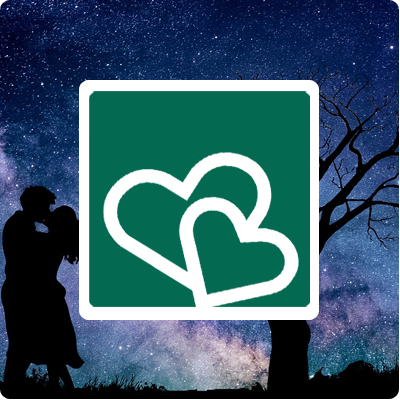 Love, friendship and relationships
Love, friendship and relationships What do you need to know?
What do you need to know?
 This theme Love contains an introduction, five lessens and a finishing touch.
This theme Love contains an introduction, five lessens and a finishing touch. The subject of this lesson is 'to friend or unfriend'.
The subject of this lesson is 'to friend or unfriend'.

 Speaking
Speaking
 Words
Words

 Thoughts about friends and friendships
Thoughts about friends and friendships
 So it’s National Unfriend Day and let’s be honest, we all have a few questionable “friends” on Facebook.
So it’s National Unfriend Day and let’s be honest, we all have a few questionable “friends” on Facebook. Speaking
Speaking What types of posts annoy you on social media?
What types of posts annoy you on social media? Word formation: prefixes
Word formation: prefixes Grammar
Grammar

 The subject of this lesson is 'Your image'.
The subject of this lesson is 'Your image'.
 Speaking
Speaking Words
Words The Calamities of Beauty
The Calamities of Beauty Writing
Writing

 Word formation: suffixes
Word formation: suffixes Grammar
Grammar Task
Task
 The subject of this lesson is 'Kissing in public'.
The subject of this lesson is 'Kissing in public'.
 Speaking
Speaking



 Words
Words The Honolulu Police Department opened an internal investigation on Wednesday into allegations that an officer wrongfully arrested a vacationing lesbian couple after seeing them kissing in a grocery store.
The Honolulu Police Department opened an internal investigation on Wednesday into allegations that an officer wrongfully arrested a vacationing lesbian couple after seeing them kissing in a grocery store. Watching
Watching Task
Task The subject of this lesson is 'Teenage parents'.
The subject of this lesson is 'Teenage parents'.
 Speaking
Speaking Britain has the highest teen pregnancy rate in Western Europe, new figures showed today. Only Bulgaria, Romania and Slovakia have a bigger problem with girls aged 15-19 giving birth, the Office for National Statistics said. Tackling high levels of teenage pregnancies is linked to the struggle to break the cycle of ill-health and poverty, the ONS said.
Britain has the highest teen pregnancy rate in Western Europe, new figures showed today. Only Bulgaria, Romania and Slovakia have a bigger problem with girls aged 15-19 giving birth, the Office for National Statistics said. Tackling high levels of teenage pregnancies is linked to the struggle to break the cycle of ill-health and poverty, the ONS said.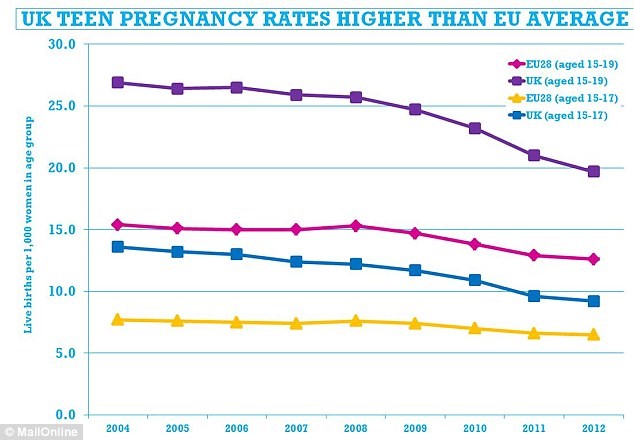
 Words
Words What Pregnant and Parenting Teens Really Need
What Pregnant and Parenting Teens Really Need
 Grammar
Grammar Task
Task The subject of this lesson is 'Love Actually'.
The subject of this lesson is 'Love Actually'.
 Speaking
Speaking Words and their meaning
Words and their meaning Watching
Watching So THAT'S why families fight so much at Christmas! Strict schedules and cramped conditions cause 'hypercopresence'
So THAT'S why families fight so much at Christmas! Strict schedules and cramped conditions cause 'hypercopresence' Writing
Writing







 Listen and speak
Listen and speak Guide to dating
Guide to dating
